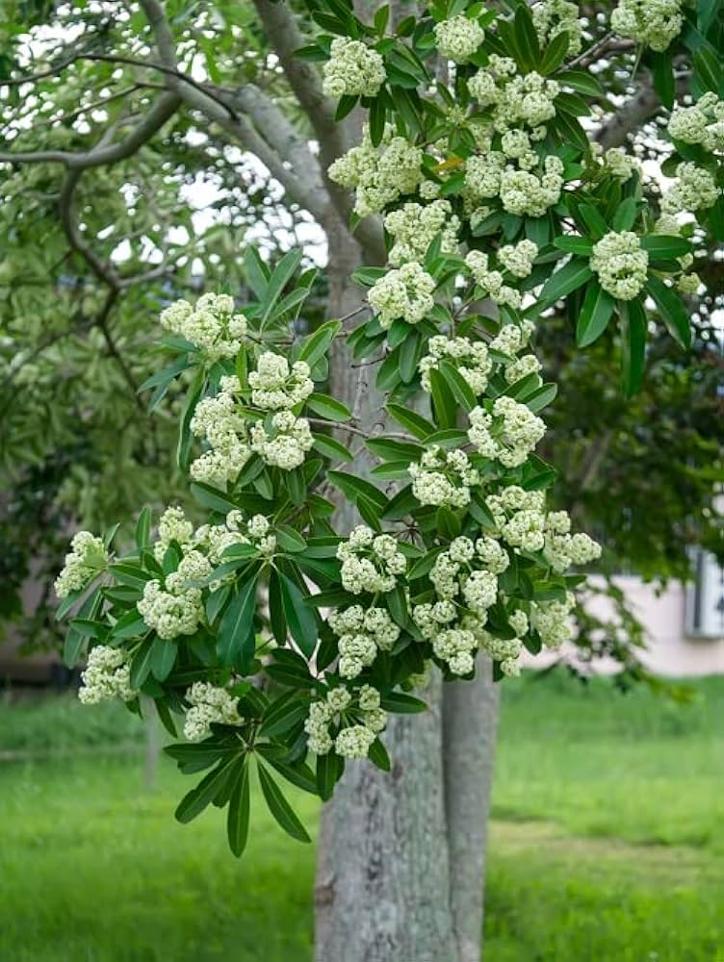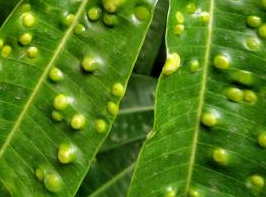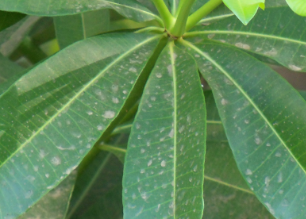Alstonia (Saptaparni) Plant
Alstonia scholaris, known as Alstonia (Saptaparni), grows 40-60 ft tall, moderate growth, well-drained soil, full sun, medium moisture, not edible, and has medicinal uses.

Habit
Deciduous tree
Height
10–20 meters
Growth
Moderate
Soil
Well-drained, sandy soil
Shade
Partial shade or full sun
Moisture
Moderate
Edible
No
Medicinal
Yes (used in Ayurveda)
Origin
India
Climatic Condition
Tropical, Subtropical
Temperature (°)
20-30
Humidity (%)
60-80%
Potting media
Peat+Perlite
Fertilizers
Balanced NPK(10:10:10)
Watering
Regular, Moderate
Plant Weight
500-700 g
Flowering Time
Year round
Soil Ph level
6.0-7.5
Water Ph level
6.5-7.5
Soil EC
1-2 dS/m
Yield Per Plant
2.5 kg of fresh bark per tree
NPK ratio
10:10:10
life Span
10-15 yrs
Health Benefits
Anti-microbial
Suggested Grow Media or Potting Mix ?
50% loam, 30% compost, 20% sand
Suggested Fertigation/Fertilizers
Fertilize once in spring with slow-release fertilizer.
Common Diseases and Remedies
Leaf spot, Powdery mildew, Root rot, Sooty mold, Scale insects
Black or brown leaf spots, powdery white coating on leaves, wilting, sticky residue on leaves
Fungicidal sprays, horticultural oil, insecticidal soap
HEALTH BENEFITS
Alstonia, a genus of trees and shrubs, is known for its medicinal properties, particularly in traditional medicine. The plant, especially Alstonia scholaris (commonly known as the blackboard tree), has various health benefits, although scientific evidence supporting some uses may be limited. Here are some of the health benefits traditionally attributed to Alstonia:
- Anti-inflammatory: Alstonia is used in traditional medicine for its anti-inflammatory properties. It may help reduce inflammation in the body and manage conditions like arthritis.
- Antimalarial: Some species of Alstonia, especially the bark, have been used as a remedy for malaria due to their antimalarial properties. Compounds found in the plant may help fight the malaria parasite.
- Antioxidant: Alstonia has been found to possess antioxidant properties, which help neutralize harmful free radicals in the body, potentially preventing oxidative stress-related diseases.
- Digestive Aid: Alstonia is used in some cultures to treat digestive problems, such as diarrhea and indigestion. The plant's bark may have properties that help soothe the digestive tract.
- Antibacterial and Antifungal: Alstonia has antibacterial and antifungal qualities, making it potentially useful in combating infections caused by bacteria or fungi.
- Pain Relief: The plant's extracts are sometimes used for their analgesic (pain-relieving) properties, providing relief from headaches, muscle pain, or joint discomfort.
- Respiratory Health: Alstonia is also used to treat respiratory issues, such as asthma and bronchitis, due to its ability to relieve congestion and reduce coughing.
- Anti-cancer potential: Some studies suggest that Alstonia compounds may have anticancer properties, though research in this area is still in the early stages.
Always consult with a healthcare provider before using Alstonia or any herbal remedy to ensure safety and effectiveness, especially when combined with other treatments.

